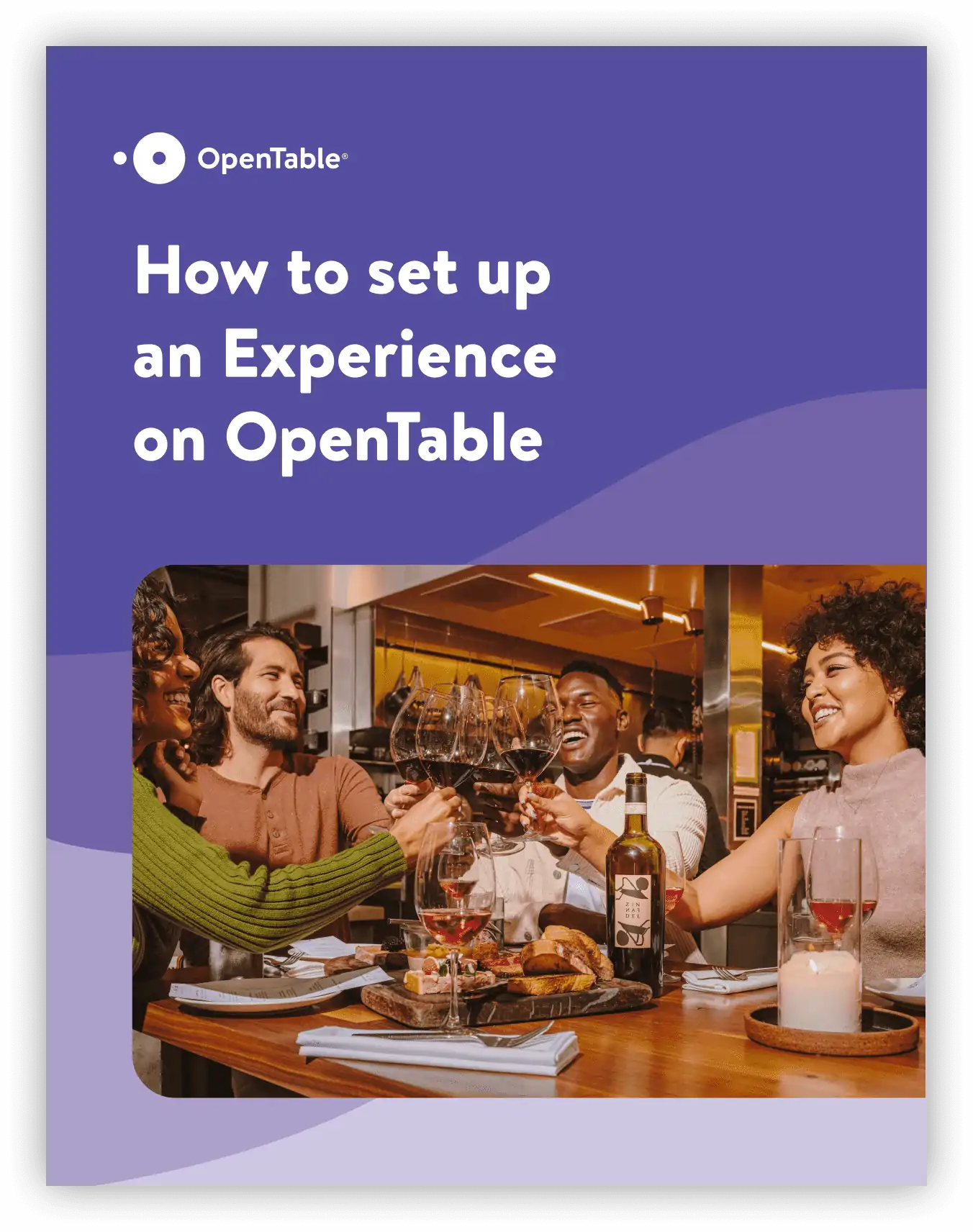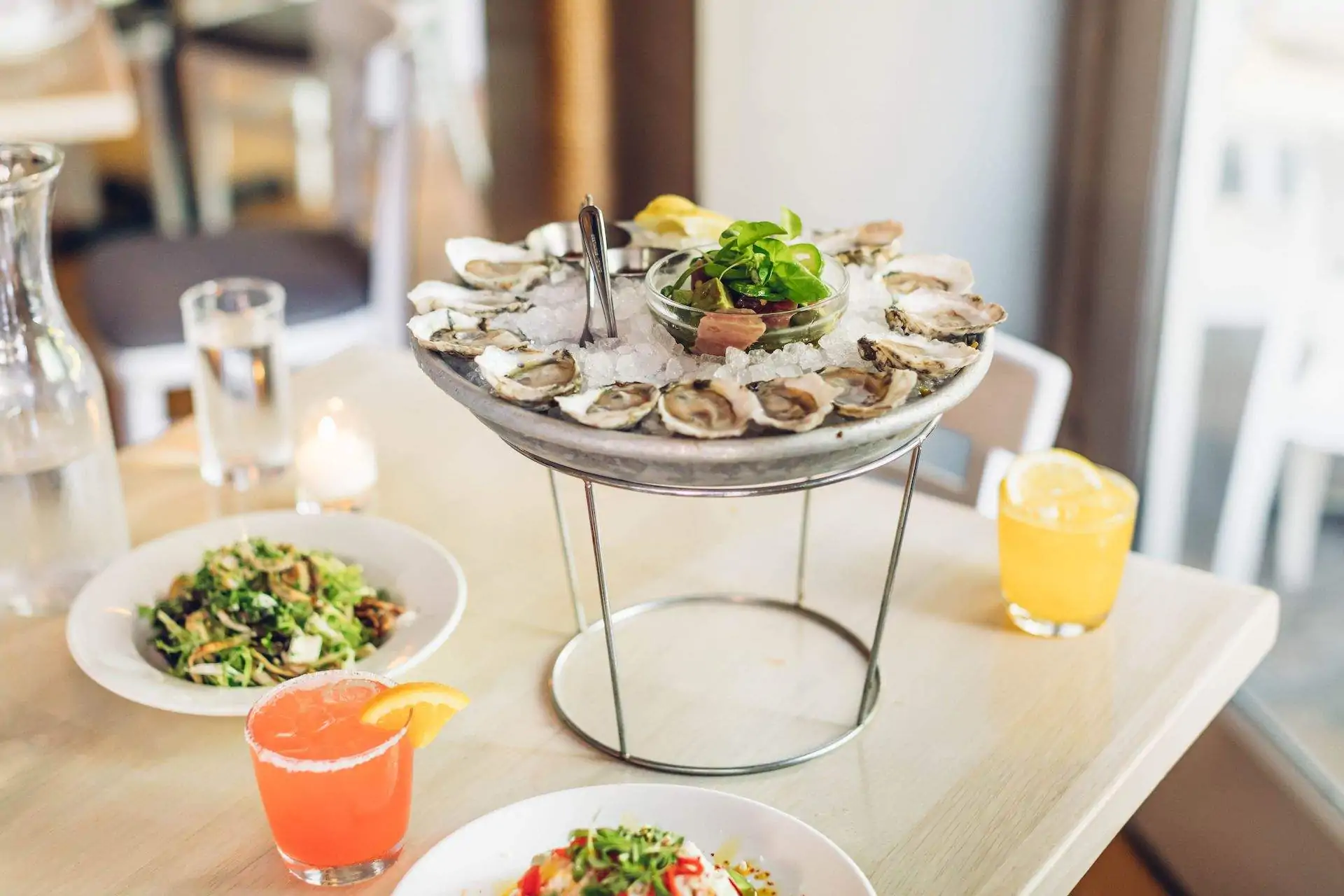Iconic brands like Ben & Jerry’s and Patagonia earn the kind of devoted fans and engaged employees that any restaurant would love to have.
The secret to their success isn’t their grand size and cache of resources—it’s that these companies put making the world a better place at the center of their business. That’s what being a B Corp is all about, and Ben & Jerry’s and Patagonia are among the most famous Certified B Corps in the world.
Simply put, B Corps are companies that put their money where their mouth is in terms of social and environmental impact. Business owners who run B Corps must consider people and the planet as well as profits in every business decision. Certified B Corps pass a rigorous assessment of how their business practices affect all stakeholders—investors, customers, employees, and the entire community.
As it stands, restaurants represent a tiny fraction of B Corps. Andy Fyfe, director of equitable growth for B Lab (the nonprofit that certifies B Corps), estimates there are fewer than 30 B Corp restaurants in the United States and Canada combined. However, there’s been a dramatic increase in companies of all kinds starting the B Corp certification process. “The number of assessments went up 47% in 2020, the highest growth we’ve seen in recent years,” says Fyfe.
Here are eight reasons why restaurants might want to consider becoming a B Corp, straight from B Lab’s Andy Fyfe and Court Desautels, the pioneering Canadian restaurateur who was among the first ever restaurants to become a Certified B Corp.
1. Prove your authenticity
More than most, restaurateurs know that talk is cheap. There can be a large gap between what some restaurants say they’re doing to make the world a better place and what they’re actually doing. At this point, most guests are wise to the widespread greenwashing that happens in restaurants. “People question the authenticity of what companies are claiming,” says Fyfe
B Corp certification answers those questions. “It’s proof, a way to differentiate good companies from good marketing,” says Fyfe. When guests understand a restaurant has been fully vetted by a credible third party, it increases trust. This trust plants the seed of long term loyalty.
2. Protect the planet
As New York City’s first 100% sustainable seafood restaurant, Crave Fishbar was an ideal candidate for B Corp certification. The restaurant’s website explains: “Brian and Chef Todd founded Crave Fishbar with a core environmental mission: to prioritize sustainability and positively impact our local waters and community.”
Over the years, Crave has partnered with Monterey Bay Aquarium’s Seafood Watch Project as well as with the New York’s Billion Oyster Project. The restaurant set the standard for sustainable seafood. It’s the kind of thing that earns major points on the impact assessment.
Like all Certified B Corps, Crave meets a high bar in many other businesses practices. They treat employees very well and are highly engaged with the community. But it was the fact that a commitment to sustainable seafood was woven into the restaurant’s DNA from the start that made it stand out as the second restaurant B Corp in New York City when it was certified in 2015.
Many businesses seek certification because they want to be acknowledged for and deepen their efforts to protect the planet.
3. Attract and retain top talent
The recent staffing crisis has made competition among restaurants for the best employees fierce. With B Corp status, hiring and retention tends to get easier.
Court Desautels, CEO of The Neighbourhood Group of Companies based in Ontario, Canada, knows this first-hand. Since becoming a B Corp in 2016, a lot has changed for his business in terms of staffing.
“Before certification, our churn rates were in line with industry standards. When we measured again after, turnover decreased by 50%,” Desautels says. That’s because during the certification process, he realized the company could do more for its people. Happy, well-cared for employees, in turn, powered the restaurant group’s success.
In addition to health and other benefits, The Neighbourhood Group of Companies now offers employees an education fund that grants them between $500 and $1,000 a year for self-development. Desautels thinks being a B Corp attracts the most serious hospitality professionals who want to work for the same business for years, not months.
4. Broaden your horizons
In many places, the local restaurant community is tight knit and generous, sharing learnings and best practices freely. But there’s a business world beyond restaurants, and learning from different kinds of companies can be surprisingly helpful.
“They don’t see it in the beginning, but the network of B Corps is the most indispensable part of all this. It’s not just a sticker in the window,” says Fyfe. It can be extremely eye-opening for restaurants to learn how other industries approach challenges and accelerate growth. And B Corp status leads to partnerships with other businesses that might not have come about in other ways.
“When other B Corp businesses want to do events, they automatically come to our restaurants. There are a lot of synergies. It has opened up countless doors and opportunities,” says Desautels.
5. Reset expectations
Going through the assessment can completely change a restaurateur’s mindset. It can spark major changes. In these cases, investors can be a double-edged sword. They bring needed capital, but expectations about profitability and return on investment come along for the ride. The B Corp certification process can help reset an owners’ vision, alter investor expectations, or lead to even bigger changes.
Desautels struggled to bring investors onboard when he began making the adjustments needed to obtain B Corp certification. “It was hard to convince investors because of the upfront costs,” he says. “Ultimately, we bought out some investors which allowed us to take the leap of faith and move forward.”
In time, the decision proved worth it from both a values and money perspective. “Our labor costs went down and our profitability went up,” he says. He attributes this mainly to ultra-engaged employees who are invested in their own and the restaurant’s long-term success.
6. Hedge against future disasters
Now more than ever, restaurants want to protect themselves from whatever surprises lie ahead. And becoming a B Corp seems to help insulate businesses from storms. “Getting certified feels good, but at the end of the day, being a B Corp makes a business more future proof and resilient in times of disaster and hardship,” says Fyfe.
In past challenges, such as the financial crisis of 2008, B Corps fared better than other similar businesses. The reasons why aren’t crystal clear, but having a team and a customer base that’s energized by the same set of values can contribute to a business’s ability to survive tough times.
7. Create more regulars
Regulars are everything to a restaurant, and people can get especially attached to B Corps, according to Desautels. Once guests learn about how a B Corp restaurant pursues its mission, they’re very likely to return if they believe in the same things.
“What makes a guest a regular is when you emotionally connect. When you know that your values and a restaurant’s values are aligned, you always want to support it. Becoming a B Corp doesn’t necessarily get people in the door the first time, but they will come back again and again if it resonates,” he says.
8. Get ahead of the curve
The type of business owners that gravitate toward B Corp certification tend to think big. The entire network of businesses is made up of thought leaders. Being part of it means constant exposure to ideas that are ahead of their time.
“The things we’re talking about now in terms of anti-racism and accessibility, these are all issues we were talking about 10 years ago in the B Corp community,” says Desautels. Those conversations made him ready for the challenges of today.
“As a B Corp, you’re better prepared for the future, and you’re always ahead of your competitor. We are leading the change,” he says.
Becoming a B Corp isn’t something to take lightly. The standards are high, and the process can take years. But the effort can pay off in more ways than one.
If you’re curious about how your current business practices stack up, take the assessment to get the lay of the land. Even if you don’t ever go through with certification, it can be a worthwhile learning experience. “Just going through the assessment tends to help people raise questions they might not have been asking,” says Fyfe.




